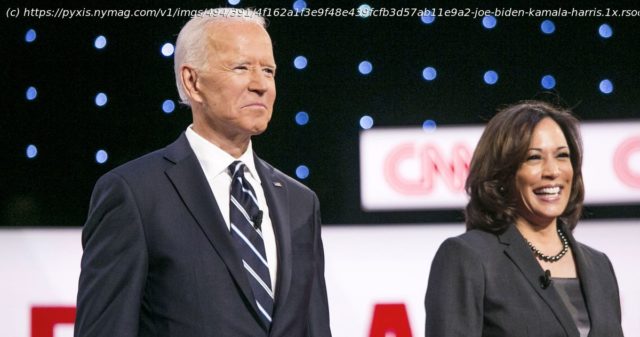Joe Biden’s invitation-only search for a running mate is starting to look like an open audition with an audience of 300 million.
The background checks, interviews, and vetting are unfolding behind closed doors in Washington and Wilmington, and on secured Zoom calls. But Joe Biden’s invitation-only search for a running mate is starting to look like an open audition with an audience of 300 million.
Stuck at home staring at his basement camera and iPhone, Biden has kept his cards close, refusing to express any preference for any of the dozen or so women he’s considering to join his ticket. That hasn’t stopped just about everyone who has his number from flooding him with advice since he effectively wrapped up the Democratic presidential nomination in March. And ever since he named a committee to lead the formal selection process last month, that group has been inundated with recommendations from just about everyone else — including via unsolicited texts from a handful of lawmakers promoting their friends as viable contenders, and searching for gossip, after word leaked among some House members in mid-May that Biden’s team had started asking candidates for references.
Meanwhile, the pols widely thought to be in contention are also making their ambitions known and maneuvering for Biden’s attention — and doing so more publicly than Democratic insiders, who are accustomed to a typically secretive process peppered with denials of interest, have ever seen before.
Stacey Abrams’s push for the job is by far the most public, to a degree that’s amazed some traditionalist Biden allies. The former Georgia statehouse minority leader is the only candidate openly campaigning for it, sitting for a range of interviews about why she would be “an excellent running mate,” while also aiming to bulk up some of the weaker spots on her résumé: She may have little international experience, but this month she published an essay in Foreign Affairs outlining her view of American leadership.
Still, many people close to Biden are convinced he will ultimately choose among Kamala Harris, Elizabeth Warren, and Amy Klobuchar — and many game their chances in roughly that order, though the ranking has shifted a few times in recent weeks, in their view, and likely will again. Publicly, Harris has been focused on pandemic-era voting rights and the coronavirus’s unequal effect on minority communities, topics she’s discussed in virtual events for Biden’s campaign. But she’s pitched in behind the scenes, too, handing Biden access to her donor network in a handful of fundraisers. And after her disorganized campaign crumbled last year, she’s slimmed down her roster of political advisers — an encouraging sign to Biden allies — while in mid-May, Biden hired her former political director to advise him on Latino voters. Warren, meanwhile, has recently emphasized protections for essential workers and the need for oversight of Trump’s stimulus spending. She’s discussed those priorities repeatedly with Biden, leading to a joint op-ed they published in a chain of swing-state newspapers early this month. Though the progressive and the centrist have clashed in the past, Biden has, increasingly, been calling Warren for policy advice. And people who’ve spoken with him say Biden noted it with interest when Obama said privately last year that he’d been impressed with Warren’s campaign. Biden and Warren have spoken at least four times since the senator left the race in March, including after her brother died of the virus last month.
Biden called Klobuchar, too, when her husband was diagnosed with COVID-19, and they spoke when he recovered. The Minnesotan, whose election-protection and voting-rights work Biden has followed, has been eager to feature in his campaign events ever since she first endorsed him in March and, soon after, slipped by telling a Michigan crowd she couldn’t think of a better way to end her campaign “than to join the ticket,” before correcting herself: “I was going to say, than to join the terrific campaign of Joe Biden.” Since then, she has headlined a handful of events alone, like a virtual letter-to-the-editor-writing workshop for Colorado educators, and joined Biden for others. In April, she appeared on his new podcast to discuss their shared prioritization of bipartisanship and esteem for John McCain, as well as the importance of compassion and empathy in the White House.
Some of the longer shots have gotten in on the action, too. Michigan governor Gretchen Whitmer, whom Biden made a co-chair of his campaign in early March, also joined his podcast in early April to talk about her state’s coronavirus response and the federal government’s failures. And Florida congresswoman Val Demings, a former police chief and Donald Trump impeachment manager, has made a point of stepping up her presence on cable news shows, and she recently joined Biden for a virtual campaign event aimed at Orlando voters.
Even with all that activity, it’s not clear whether the various influence campaigns will have much effect on Biden or his committee. Some of the party’s most powerful figures have, for now, refrained from pressuring Biden one way or another. “The names that we’re hearing, we are friends with all of those folks, and we are going to rely upon his judgment,” Lee Saunders, the American Federation of State, County and Municipal Employees president, told me.






